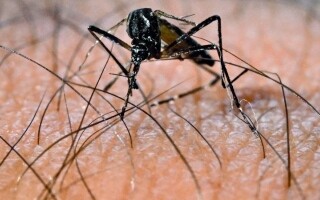
One of the initiatives launched in the Philippines aimed at combating mosquitoes that transmit dengue fever involves offering monetary rewards for collecting live or dead mosquitoes. This campaign was initiated in the village of Addition Hills in the city of Mandaluyong under conditions of heightened risk after the announcement of dengue outbreaks in the neighboring city of Quezon. However, critics of the initiative warned that such a strategy could lead to unintended results if financially struggling residents begin breeding mosquitoes for the sake of earning money.
Many Filipino health officials and experts have expressed concerns and disapproval of this idea, yet there was high enthusiasm among the community: residents brought in buckets, containers, and jars filled with mosquitoes to earn the monetary reward, hoping to make money from them.
According to the Ministry of Health, in all regions of the Philippines, there has been a 40% increase in reported cases of dengue-related illnesses compared to the same period last year. The dengue outbreak in Quezon followed the deaths of 10 individuals, most of whom were children, among 1,769 registered cases of dengue.
The village of Addition Hills, home to over 100,000 residents, conducted cleanup campaigns, unclogged drains, and initiated actions to ensure cleanliness. However, after the death of two young schoolchildren and an increase in the number of reported cases to 42 this year, the village head, Carlito Sernal, proposed a reward for every mosquito collected.
He stated that residents receive a reward for every five mosquitoes or larvae they present to the village authorities. This measure aims to supplement existing efforts, such as street cleanliness and preventing water stagnation, where dengue-carrying mosquitoes breed.
One resident, named Ilumidad Candasua, brought three live mosquito specimens in a sealed plastic container designed for the so-called "death chamber," equipped with ultraviolet light, surrounded by glass. He explained that strategically selecting specific lighting, purchasing, and utilizing this container for manual mosquito collection would help.
Miguel Labag, a 64-year-old cleaner, presented a snapshot showing 45 black mosquito larvae and received a reward of 9 pesos. He smiled as he said: "This help is great; I can buy coffee with it." Already, 21 individuals have received their rewards, collectively collecting 700 mosquitoes and larvae.
The Minister of Health of the Philippines, Tedoro Herbosa, noted that "it is essential to clear areas that are breeding grounds for mosquitoes, and individuals exposed to infections should be attended to promptly with medical assistance." Vice Minister of Health Alberto Domingo noted the unexpected spike in dengue cases at the start of the rainy season in June due to persistent rains that created stagnant water bodies where dengue-carrying mosquitoes could proliferate.










